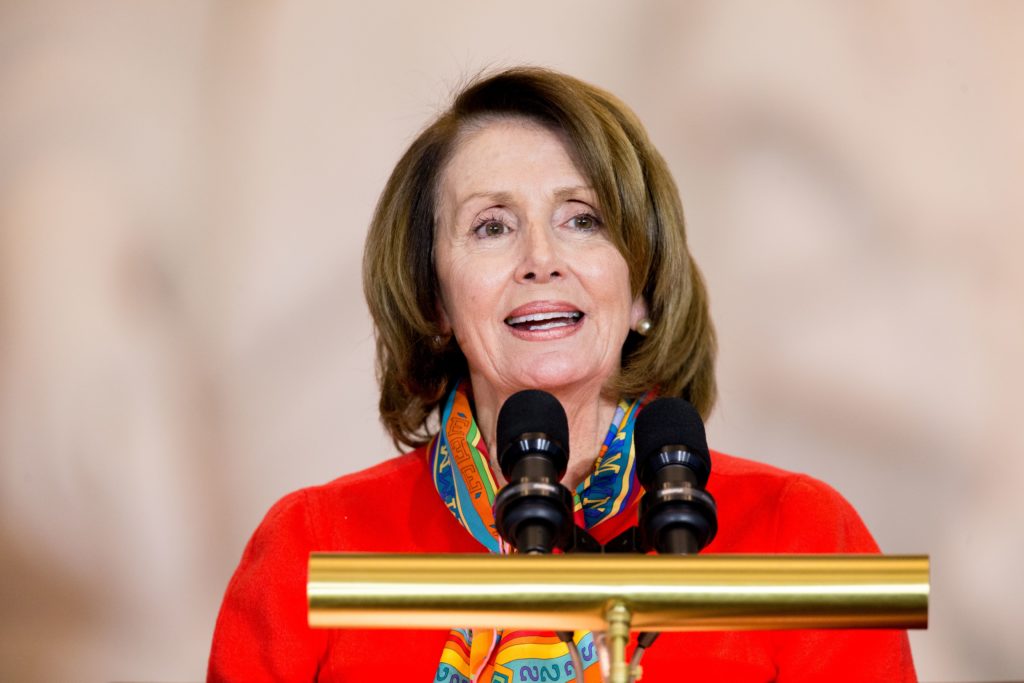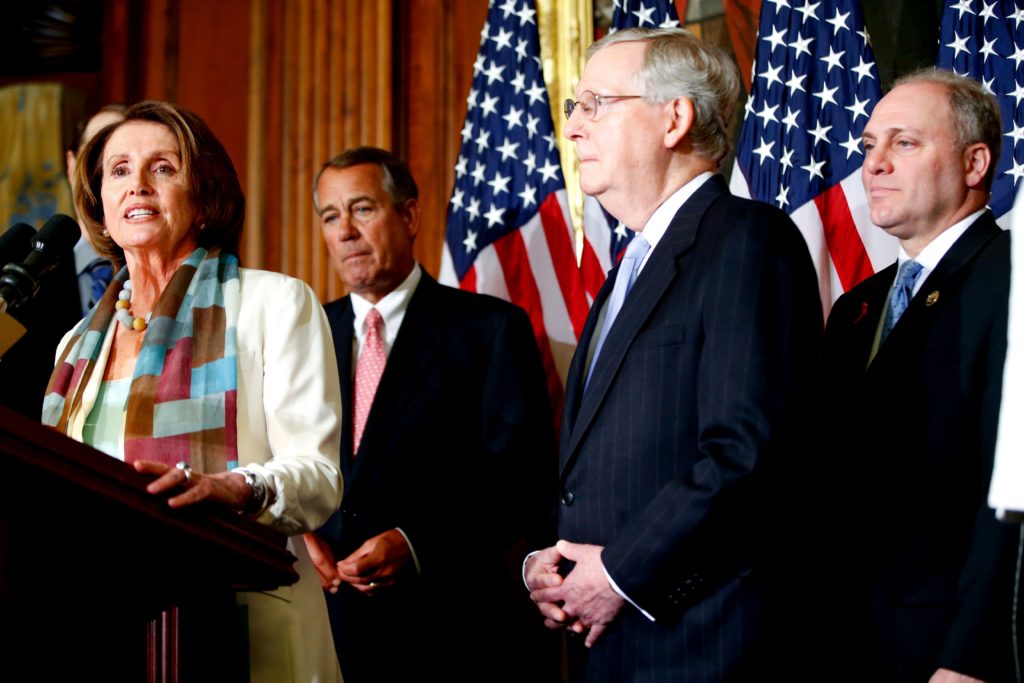7 Steps to a Better Washington with Nancy Pelosi
Marianne Schnall interviews Minority Leader of the United States House of Representatives Nancy Pelosi who broke the “marble ceiling” when she became the first female Speaker of the House in 2007. With the percentage of women in Washington still far too low in Pelosi’s opinion, she stresses “we need more women–Democratic and Republican women–serving in City Hall, in the State House, in Congress, on the Supreme Court, and in the White House to break through that ceiling once and for all. Nothing is more wholesome for our politics and our policies than the increased participation of women.”
Read on for Leader Pelosi’s 7 steps to a better Washington and don’t miss the 1 thing she says women considering a political career need to know.

House Minority Leader Nancy Pelosi of Calif. speaks during a commemoration ceremony for the 150th anniversary of the ratification of the 13th Amendment to the U.S. Constitution which abolished slavery in the United States, Wednesday, Dec. 9, 2015, in Emancipation Hall on Capitol Hill in Washington. (AP Photo/Andrew Harnik)
1. What event in your life sparked you to get involved in politics?
As a mother of five children – the oldest was 6 when I brought my baby home – I saw the advantages that my own children had and was in despair over the fact that so many children – now one in five children in America lives in poverty. That’s what motivated me 28 years ago and that’s what motivates me every morning and every night: America’s children.
2. Are there specific challenges or obstacles that you think women leaders and candidates still face? What can we do to address them?
We have to reduce the role of money and increase the level of civility. If we do that, we will elect more women, more young people, more minorities, more LBGT – and all Americans will be better for it.
3. Do you think that there’s less tolerance for sexist treatment of women in the media? Do you think that we are seeing more of a pushback and protest when this happens?
Ninety-some years ago, women got the right to vote. When they did, the papers said: “Women given the vote.” Women weren’t given the right to vote. Women won that right. They marched, they fought, they starved, and it took decades for women to have the right to vote. What’s really important is we have to fight for all of this in that tradition – the rich American tradition of speaking up and standing up for fairness and equality in all aspects of public and private life.

House Minority Leader Nancy Pelosi of Calif., left, joined by, from second from left, House Speaker John Boehner of Ohio, Senate Majority Leader Mitch McConnell of Ky., and House Majority Whip Steve Scalise, R-La., speaks on Capitol Hill in Washington, Thursday, April 16, 2015, prior to Boehner signing a bipartisan bill which blocks a cut in Medicare payments that was due to take effect this month, and it revamps how physicians will be paid in the future. (AP Photo/Andrew Harnik)
4. Politics can seem like a very dysfunctional system from the outside. Is your view from the inside different? Do you feel like you have the capacity to effect change?
Democrats actually worked well with President Bush. We disagreed with him on a number of issues — the Iraq War, privatizing Social Security – but we still got things done. This Republican Congress’ obsession with shutting down the government whenever they dislike something is not what the framers had in mind. That’s why voting remains so important – we must elect people who actually believe in government, in public service, and in the future of our country, so we can make progress.
5. Do you think our country is ready to elect a woman president? What do you think it would it mean for our politics, our country and our culture to have a woman president?
The American people are very, very ready for a woman president. The American people recognize the vision, leadership, and wisdom that women bring to the table – and they are ready for a woman to lead in the White House.
Three words: know your power.
6. Do you think the climate has improved for women in Washington since you broke the glass ceiling by becoming the first female Speaker of the House?
Well first of all, it’s a marble ceiling. Of course I was glad to break it. But we need more women – Democratic and Republican women – serving in City Hall, in the State House, in Congress, on the Supreme Court, and in the White House to break through that ceiling once and for all. Nothing is more wholesome for our politics and our policies than the increased participation of women.
7. What advice or words of wisdom would you offer a young woman considering a career in politics?
Three words: know your power. The best advice I ever got when I ran for office was: be yourself. You can have role models, but be yourself. Young women may want to have mentors and may want to emulate others for what they have done, but I would encourage them to know their own power, understand who they are, know what works for themselves in terms of timing, their schedule, their life, their choices and the rest.
Read more from Democratic Leader Nancy Pelosi:
Marianne Schnall is a widely published writer and interviewer whose writings and interviews have appeared in a variety of media outlets including O, The Oprah Magazine, TIME.com, In Style, CNN.com, EW.com, the Women’s Media Center, and many others. Marianne is a featured blogger at The Huffington Post and a contributor to the nationally syndicated NPR radio show, 51 Percent: The Women’s Perspective. Schnall is the founder and Executive Director of Feminist.com, a leading women’s website and nonprofit organization. For nearly 20 years, Feminist.com has been fostering awareness, education, and activism for people all across the world.
Marianne’s latest book What Will It Take to Make A Woman President?: Conversations About Women, Leadership and Power, features interviews with politicians, public officials, thought leaders, writers, artists, and activists in an attempt to discover the obstacles that have held women back and what needs to change in order to elect a woman into the White House.
